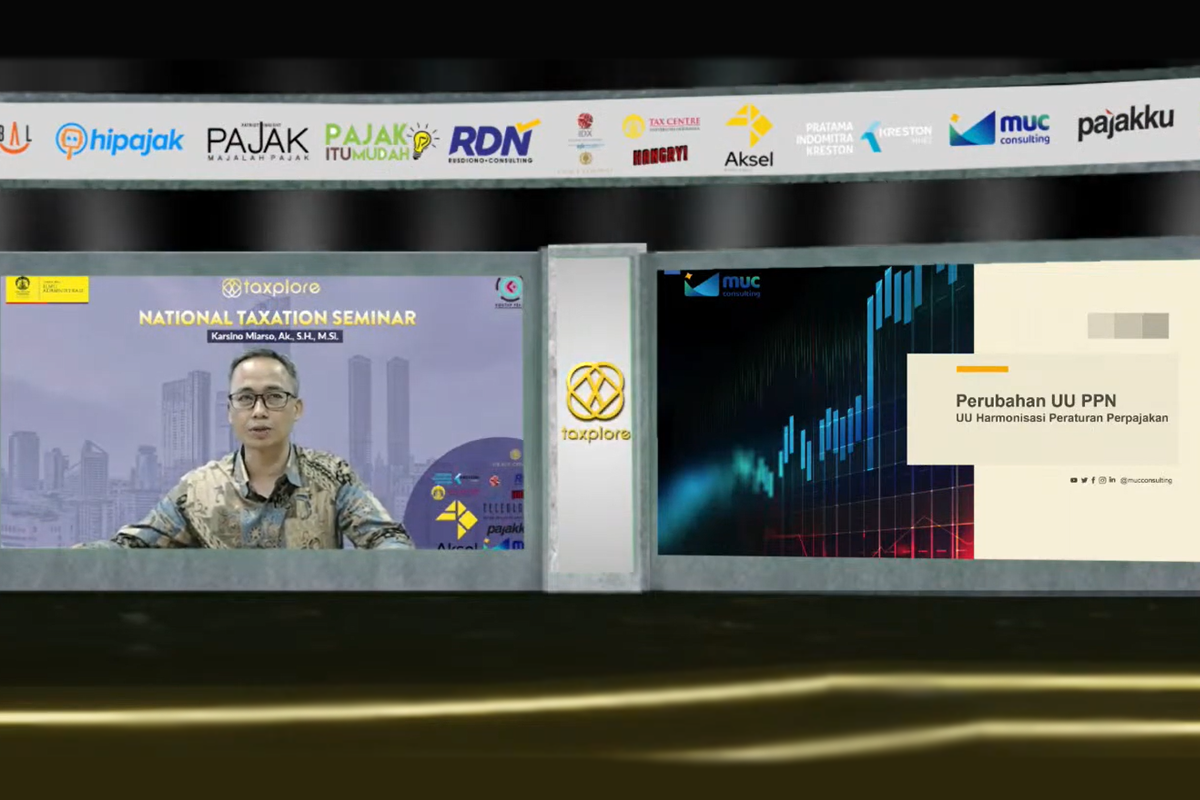MUC-KOSTAF UI Tax Webinar: Overviewing VAT Provisions in the HPP Law
Monday, 06 December 2021

JAKARTA. Amendments to the Value Added Tax (VAT) Law through the issuance of the Law on Harmonization of Tax Regulations, are deemed to need confirmation to be clearer.
So that in practice it does not cause confusion for the taxpayer and the tax authorities as technical implementers in the field.
This is one of the views conveyed by MUC Consulting Partner Karsino Miarso in a webinar organized by the Fiscal Administration Study Group (KOSTAF) of the University of Indonesia (UI).
The webinar that discussed the VAT aspects in the HPP Law is part of a series of annual events of KOSTAF FIA UI named Taxplore which was held on Saturday (4/12) virtually.
As in previous years, MUC Consulting as a company committed to the development of human resources in the field of taxation also supports the activities of Taxplore 2021.
Increasing the Tax Base
Also present as a speaker in this webinar, the Head of Sub-Directorate of Industrial VAT Regulations Directorate General of Taxes (DGT), Josephine M. Wiwiek, and FIA UI Academician Prof. Gunadi.
In her presentation, Wiwiek explained that the purpose of changing several VAT provisions in the HPP Law is to increase the tax base in Indonesia.
In detail, Wiwiek also said that the HPP Law was part of tax reform on the regulatory side, in addition to the previous ones that had been successfully drafted such as Law No.2 of 2020 on the enactment of Government Regulation in Lieu of Law (Perppu) Number 1 of 2020 and Law No.11 of 2020 on Job Creation.
Obscuring VAT Concept
While Prof. Gunadi assessed that the changes that occurred in the HPP Law had obscured the concept of VAT on capital goods that had been adopted by Indonesia based on consumption into gross products.
Furthermore, Prof. Gunadi explained that in the VAT gross product type which has the largest tax base, every capital item is a tax object or taxable item.
Meanwhile, in the consumption-type VAT that has been adopted by Indonesia, the only thing that will be subject to VAT is expenditure on the consumption of an item. So that the capital goods are not taxable goods, but the input tax can be credited in the same tax period as the transfer of the goods.
Apart from these two types, there is also an income type VAT which also considers capital goods as non-taxable goods.
Minimizing Gray Area
With regard to these various inputs, the tax authorities ensure that they will prepare all technical regulations that can minimize disputes and reduce gray areas.
So, in its implementation, it can reduce differences in interpretation that occur not only between the tax authorities and taxpayers but there are also common perceptions among tax officers. Thus, these efforts will result in uniformity and legal certainty in enforcing regulations in the tax sector.


